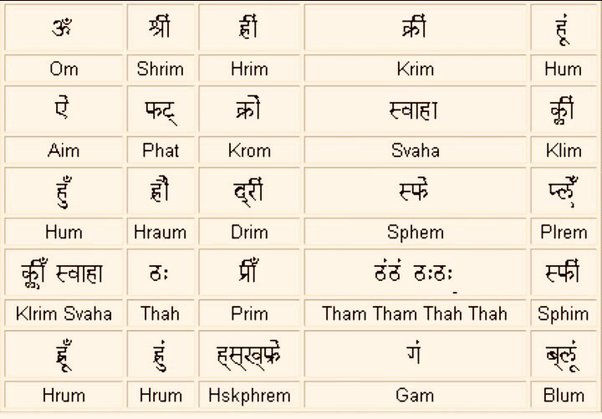Isaac Newton still remains one of the enigmas of Science.
He was a Scientist par excellence.

But unlike some of the other Scientists, he believed in Intuition along with Reason.
Not for him the empty rhetoric of ‘only Reason’
He was a seeker of Truth, how he obtained them was of no concern of his.
So long as the results are verifiable , it was fine with him.
How many of us know that he was a Free Mason of a very high Degree and a Member of The Illuminati?
A recent article on this area has appeared in The Raw Story.
Excerpts:
”
Often wrongly portrayed as a cold rationalist, Isaac Newton is one of history’s most compelling figures. It is true that he was capable of the most precise and logical thought it is possible for a human to achieve: his three years of obsessive work that gave birth to the Principia, containing his theory of gravity, stand as the greatest achievement in science.
Just as certainly, though, he was also consumed with what we would now view as completely unscientific pursuits: alchemy and biblical prophesy.
Alchemy was a major passion of Newton’s. In a footnote on page 21 of Richard Westfall’s meticulous biography, Never at Rest, the author states: “My modes of thought are so far removed from those of alchemy that I am constantly uneasy in writing on the subject … [Nevertheless] my personal preferences cannot make more than a million words he wrote in the study of alchemy disappear.”
Historian and novelist Rebecca Stott wrote in her novel Ghostwalk that with those words, “Westfall admitted to wishing that he could make those million words disappear.” That may be stretching it somewhat but clearly Newton’s alchemy is a bit of an embarrassment to modern scholars.
Then there was Newton’s biblical prophesy. In almost the same years that he was working on the Principia, he also wrote a treatise on Revelation in which he talked about souls burning in lakes of fire. With talk like that, he could have been the lyricist for Iron Maiden. (He had the hair too.)..
In Newton’s time, the natural philosophers had turned their backs on astrology and with it, the idea that influences could simply leap across empty space. Instead impulses had to be transmitted through things touching one another. So, if there was a force coming from the Sun that moved the planets, then it had to do so through a medium.
Perhaps it was a fluid, driven to circulate by the rotation of the sun, which carried the planets around. This was the thinking of French philosopher René Descartes.
Yet Newton could not make the mechanical solution of Descartes work. The vortices simply could not reproduce the changes in speed of the planets as they approached the sun.
Alchemy offered a way out by having as a philosophical underpinning that non-material influences – spirits – existed. These needed no physical contact and could induce transformations or movement through the triggering of “active principles” within an object.
Primed to believe in these ideas, Newton discovered a simple, elegant mathematical equation that described the behaviour of gravity without the need for an intervening fluid. Gravity apparently worked across empty space. He called this principle “action at a distance” and instead of “spirit” began using the word “force” to better reflect its mathematical character.
His equation also reveals the “active principle” that governs an object’s response to gravity. It is mass. With such direct analogies to spirits and active principles, Newton must surely have felt some sort of vindication for his alchemical beliefs.
The theory of gravity was so successful that it became one of the triggers for the Age of Enlightenment. Although hardly anyone now believes in the concept of alchemy, we do still believe that gravity can exert an influence across empty space. Engineers still use Newton’s maths to launch satellites and send spacecraft to distant planets.
So was Sir Isaac a scientist or a sorcerer? In truth, he was a bit of both. And that was why he could succeed where others had failed.”
To me he was a Noetic Scientist of the first order.
”
For centuries, philosophers from Plato forward have used the term noetic to refer to experiences that pioneering psychologist William James (1902) described as:
…states of insight into depths of truth unplumbed by the discursive intellect. They are illuminations, revelations, full of significance and importance, all inarticulate though they remain; and as a rule they carry with them a curious sense of authority.
The term noetic sciences was first coined in 1973 when the Institute of Noetic Sciences (IONS) was founded by Apollo 14 astronaut Edgar Mitchell, who two years earlier became the sixth man to walk on the moon. Ironically, it was the trip back home that Mitchell recalls most, during which he felt a profound sense of universal connectedness—what he later described as a samadhi experience. In Mitchell’s own words, “The presence of divinity became almost palpable, and I knew that life in the universe was not just an accident based on random processes. . . .The knowledge came to me directly.”
It led him to conclude that reality is more complex, subtle, and mysterious than conventional science had led him to believe. Perhaps a deeper understanding of consciousness (inner space) could lead to a new and expanded understanding of reality in which objective and subjective, outer and inner, are understood as co-equal aspects of the miracle of being. It was this intersection of knowledge systems that led Dr. Mitchell to launch the interdisciplinary field of noetic sciences.
Why Consciousness Matters
con•scious•ness: In our work, personal consciousness is awareness—how an individual perceives and interprets his or her environment, including beliefs, intentions, attitudes, emotions, and all aspects of his or her subjective experience.Collective consciousness is how a group (an institution, a society, a species) perceives and translates the world around them.
This is precisely what Indian Philosophy’s stand.






Leave a comment